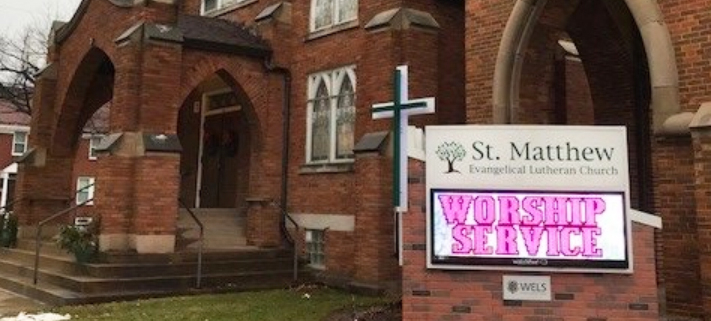Well pleased
Through the sacrifice of God’s Son, we are now God’s children, with whom he is well pleased.
Luke C. Werre
The Transfiguration of our Lord is an event filled with mysteries. To me, one of the greatest mysteries is the heavenly Father’s declaration: “This is my Son whom I love; with him I am well pleased” (Matthew 17:5).
God’s pleasure in his Son
Well pleased? Pleased that his Son would be descending the mountain in order to go to Jerusalem, to a people who would reject him? Pleased that he would be headed to the cross and suffering? Pleased that his perfectly obedient Son would sacrifice himself for ignorant and unappreciative recipients of his largesse?
I have two sons, who are precious to me. Jesus and his Father have had a relationship of perfect love from eternity. There has been nothing but perfect unity of purpose, mind, and will between them. As much as I love my sons, it cannot compare with the heavenly Father’s infinite love for his Son. No matter how much pride, satisfaction, and joy I have in my sons, my heavenly Father’s infinite joy and satisfaction in his Son is infinitely deeper. With him, the Father, the Almighty, is well pleased.
By total contrast, I am the son with whom God should not be well pleased. Often enough he gives me a peek into caverns of my heart where total depravity still lurks deeply like so many years of layered bat dung. A little suffering or a little adversity quickly reveals the muck of pride, impatience, hatred, hostility, resentment, faithlessness, despair, and self-absorbed concern. I don’t like myself very much for such things. I’m thankful that God doesn’t allow me to dwell on the totality of my sinfulness. I’m sure I could not bear it. I feel like it would destroy me. But I can perceive just enough of it to assess myself as the hymn writer did: a worm. “Alas and did my Savior bleed And did my Sov’reign die? Would he devote that sacred head For such a worm as I?” (The Lutheran Hymnal 154:1).
God’s pleasure in what his Son did
The wonder of it, the grand mystery of it, is that the heavenly Father was not merely announcing his pleasure with who Jesus is, but also with what Jesus came to do—that he would devote that sacred head for such a worm as I. The apostle Paul framed this truth in another way: “God demonstrates his own love for us in this: While we were still sinners, Christ died for us” (Romans 5:8).
The Father was well pleased with his Son because the Son would do his Father’s will. Jesus descended the Mount of Transfiguration, marched on to Jerusalem, and sacrificed himself on the cross for sinners like you and me! And God the Father was pleased!
Do you see that, because the Son obeyed, your heavenly Father has no ill will toward you? You and I would be appalled to see our sons suffer to make someone else’s circumstance better. But your heavenly Father does not hold back his Son. There is not even hesitancy on his part to make the greatest possible sacrifice for you as he sends his Son to agony and death in order to atone for your sinfulness. No longer are we regarded as worms because he “redeems [our lives] from the pit and crowns [us] with love and compassion” (Psalm 103:4).
No longer a worm. A child of God with whom God is well pleased—that’s the new status for each of us as we trust in Jesus. By his death our sins have been forgiven. God finds no fault with us. He is pleased not to find fault with us!
Is this not a mystery? Is this not grace?
Luke Werre is pastor at Peace, Sun Prairie, Wisconsin.
SUBMIT YOUR STORY
Do you have a manuscript, idea, or story from your own life you’d like to share for use in Forward in Christ or on wels.net? Use our online form to share it to our editorial office for consideration.
SUBSCRIBE TO FORWARD IN CHRIST
Get inspirational stories, spiritual help, and synod news from Forward in Christ every month. Print and digital subscriptions are available from Northwestern Publishing House.
Author: Luke C. Werre
Volume 106, Number 2
Issue: February 2019
Copyrighted by WELS Forward in Christ © 2021
Forward in Christ grants permission for any original article (not a reprint) to be printed for use in a WELS church, school, or organization, provided that it is distributed free and indicate Forward in Christ as the source. Images may not be reproduced except in the context of its article. Contact us









